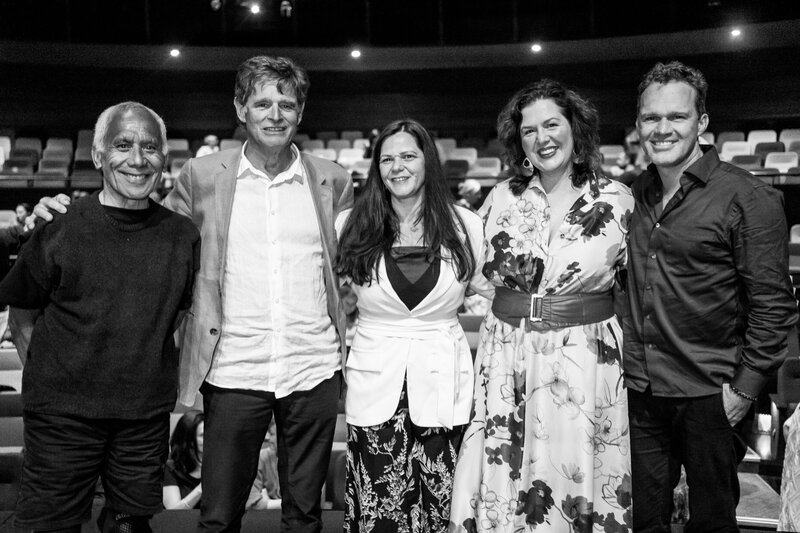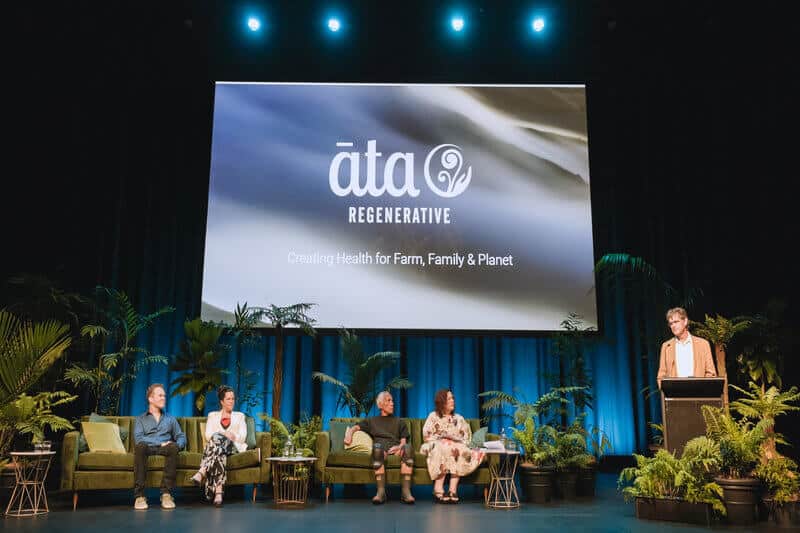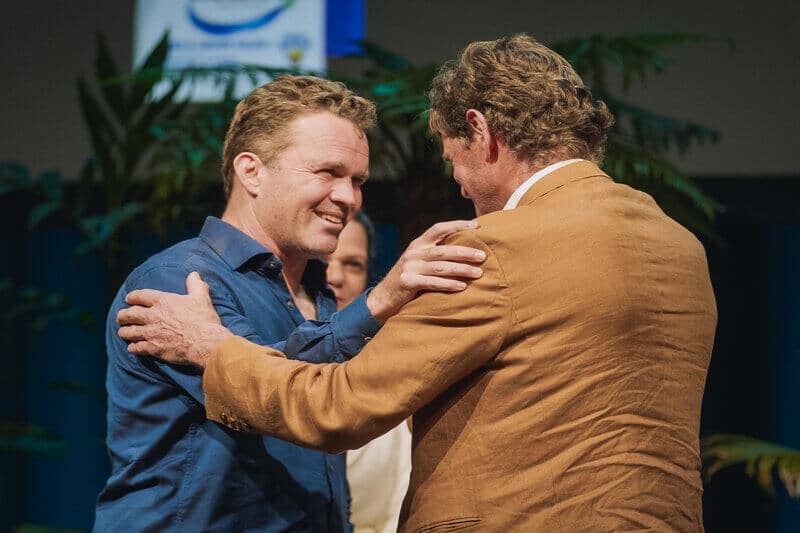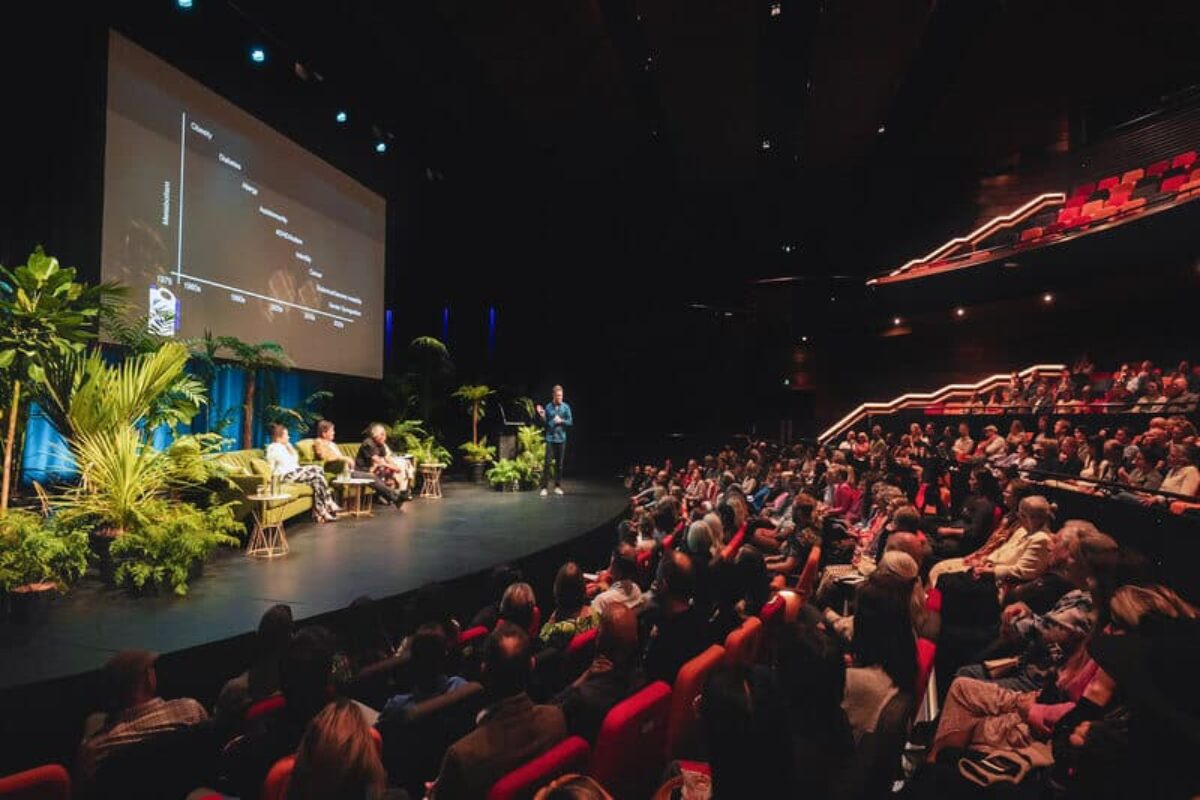Last month Ata Regenerative officially launched Farmer’s Footprint. Joining me on stage for a night of incredible storytelling around regeneration were Zach Bush MD, Nicole Masters, Tre’ Cates, Te Rangikaheke Kiripatea, and our brilliant MC, Angela Clifford.
The launch of Farmer’s Footprint New Zealand has been a huge success and a memorable occasion full of connection, community, inspiring conversations and a deep remembering of our highest potential as humanity. As Frankie Valli said, “Oh, what a night!” It was fantastic!
Through the event Road to Regeneration, Farmer’s Footprint New Zealand has officially begun its mission to support New Zealand farmers in the shift toward regenerative systems and unite farmers, growers and citizens through regeneration stories.

Shifting to a regenerative vs. mechanistic paradigm
While New Zealand recognises and is proud of its agricultural roots, farmers are feeling increasingly targeted and disenfranchised. This is not without good reason, as current agriculture is a major contributor to the ecological and social harm and unintended consequences of the current industrialised model.
But there is no gain from blame or recriminations. Farmers have not set out to deliberately damage their environment; they are concerned for the health of the land, but they have responded to the environment around them, principally the production at-all-costs system, which has become the driving force of NZ and global agriculture.
But while farmers are a major contributor to the harm, they also represent our greatest hope. The health of humanity and the environment depends on a regenerative shift in our land managers.
The shift in production systems from the mechanistic to living systems paradigm is the only way we will make meaningful changes to food, environment and climate health.
Farmers need support to take up front-line positions in this battle; this will come from enlightened consumers aware of the impact industrialised farming has on the health of their food, animals and the environment.

How you can get involved
Many of you are asking how I can get involved. Farmer’s Footprint New Zealand is a non-profit, and the team at Farmer’s Footprint will rely upon the generosity and support of the community to realise its mission.
You can support the mission right now by purchasing the recording from Road to Regeneration…
Here’s how.
Missed the Road to Regeneration event? The full recording is now available to purchase for $39+GST. Watch the trailer and secure your online recording via farmersfootprint.nz.
These contributions help support our mission to accelerate regenerative food systems in New Zealand.
Follow FFNZ on social media – Join them on the road to regeneration via Instagram, Facebook or LinkedIn and watch for future events.

Farmer’s Footprint NZ has arrived – hope is here
To quote Zach Bush, “Humans are not made of cells, they’re made of stories,”
Farmer’s Footprint NZ exists to tell your stories, to educate, inform, give direction, and hope towards regenerative agriculture.
Stay well, connect with those around you and nature, know your food, and have hope because Farmer’s Footprint New Zealand has arrived and it’s time to tell a new story.
Together, we can positively impact our environment while ensuring a thriving agricultural industry for generations to come.
For more information, visit the official Farmer’s Footprint New Zealand website.



